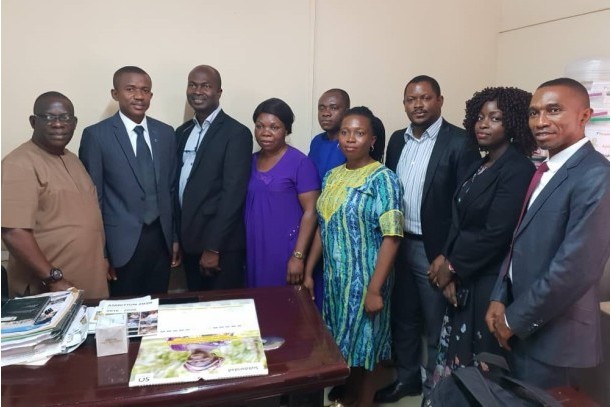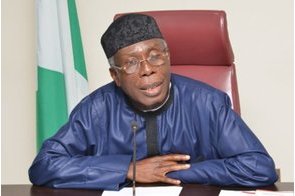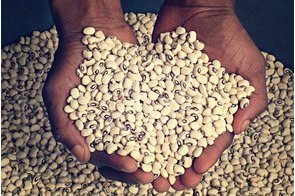Solidaridad strengthens partnership with Nigeria on Sustainable Development Goals

Summary
In collaboration with cocoa companies in Nigeria, Solidaridad has trained over 27,000 farmers in cocoa production.
Solidaridad, an international network organisation focused on addressing food security, nutrition and community development, has said it will partner with the Nigerian government to enable it achieve Sustainable Development Goals (SDGs) in the country.
In a statement released on Thursday, Solidaridad said it will support the Nigerian government's Agriculture Promotion Policy (2016-2020) – which is President Muhammadu Buhari's environment-friendly agriculture reform – as well as the country's commitment to reduce carbon emission as contained in the Nationally Determined Contributions (NDC) in the Paris Climate Agreement.
Solidaridad West Africa (SWA), the organisation's regional operation, which has presence in Cote d'Ivoire, Ghana, Liberia, Nigeria and Sierra Leone, helps the region with structured programmes to address crop productivity and service delivery challenges. It says crop productivity in West Africa is less than a quarter of optimum global averages. And the region is among the hardest hit by climate change impact.
For instance, due to decline in Nigeria's agricultural production over the past decades, the country is a net food importer, spending about $3 to $5 billion annually importing food items such as rice, wheat, fish, etc. Solidaridad also creates programmes to attract young people to go into agriculture while ensuring gender inclusivity.
According to the statement released today, Solidaridad Network Senior Climate Specialist for Africa, Samson Samuel Ogallah, led a team that visited the Federal Ministry of Agriculture and Rural Development (FMARD) as well as the Department of Climate Change (DCC) and National REDD+ Secretariat, which are under the Federal Ministry of Environment in Abuja.
At FMARD, the team met with Deputy Director, Tree Crops, B.C. Ukatta, and other officials of the ministry. Both teams discussed the importance of working collaboratively towards achieving self-sufficiency in palm oil and other agricultural commodities in Nigeria.
In collaboration with cocoa companies in Nigeria, Solidaridad has trained over 27,000 farmers on Good Agricultural Practices (GAP) in cocoa production and about 78 percent of those who are trained have adopted GAP. This has led to a 40 percent increase in productivity. SWA has assisted over 5000 smallholder cocoa farmers to become UTZ certified in Nigeria. UTZ is a programme and a label that shows consumers a product is a derivative of sustainable farming.
Under its Sustainable West Africa Palm Oil Programme (SWAPP), Solidaridad has conducted studies on oil palm in Nigeria. The network has also created awareness on sustainable climate smart oil palm production among stakeholders. It has supported the national interpretation process for Roundtable on Sustainable Palm oil (RSPO) Principles and Criteria in Nigeria.
The SWA team was welcome by Peter Tarfa, Director at the Department of Climate Change. Tarfa recalled the successful partnership between Solidaridad and the Ministry of Environment at an event held at the Nigerian Pavilion during the United Nations Climate Change Conference (COP24) in Katowice, Poland, last December.
The Director also commended Solidaridad for its role in supporting climate smart agriculture, which helps farmers to increase productivity, adapt to climate change and address mitigation actions along the value chain.
The Solidaridad team was received by Moses Ama and his team at the National REDD+ Secretariat. The Secretariat is implementing the UN-REDD (Reducing Emissions from Deforestation and forest Degradation) programme in the country. The climate change mitigation programme assists countries to develop the capacities needed to meet the requirements for carbon offsets. Countries that meet those requirements are qualified to receive payments under the convention.
Ama in his address stated that agriculture to date remains one of the major drivers of deforestation in many developing countries. He expressed optimism that Solidaridad’s approach of doing business in the sector with its principle of ‘producing more with less’ will contribute to reverse these trends.
Related
-
Confab reviews Nigerian agriculture policy
The aim of the Abuja meeting is to develop a new policy to revamp the agriculture sector in Nigeria.
-
World Bank, AU, others commit to end hunger and malnutrition in Africa
The African Union signed a deal with four multilateral development organisations to adapt Africa’s agriculture to ...
-
Nothing less than a seed revolution for smallholder farmers
Farmers typically use two types of seed systems — formal and informal.







